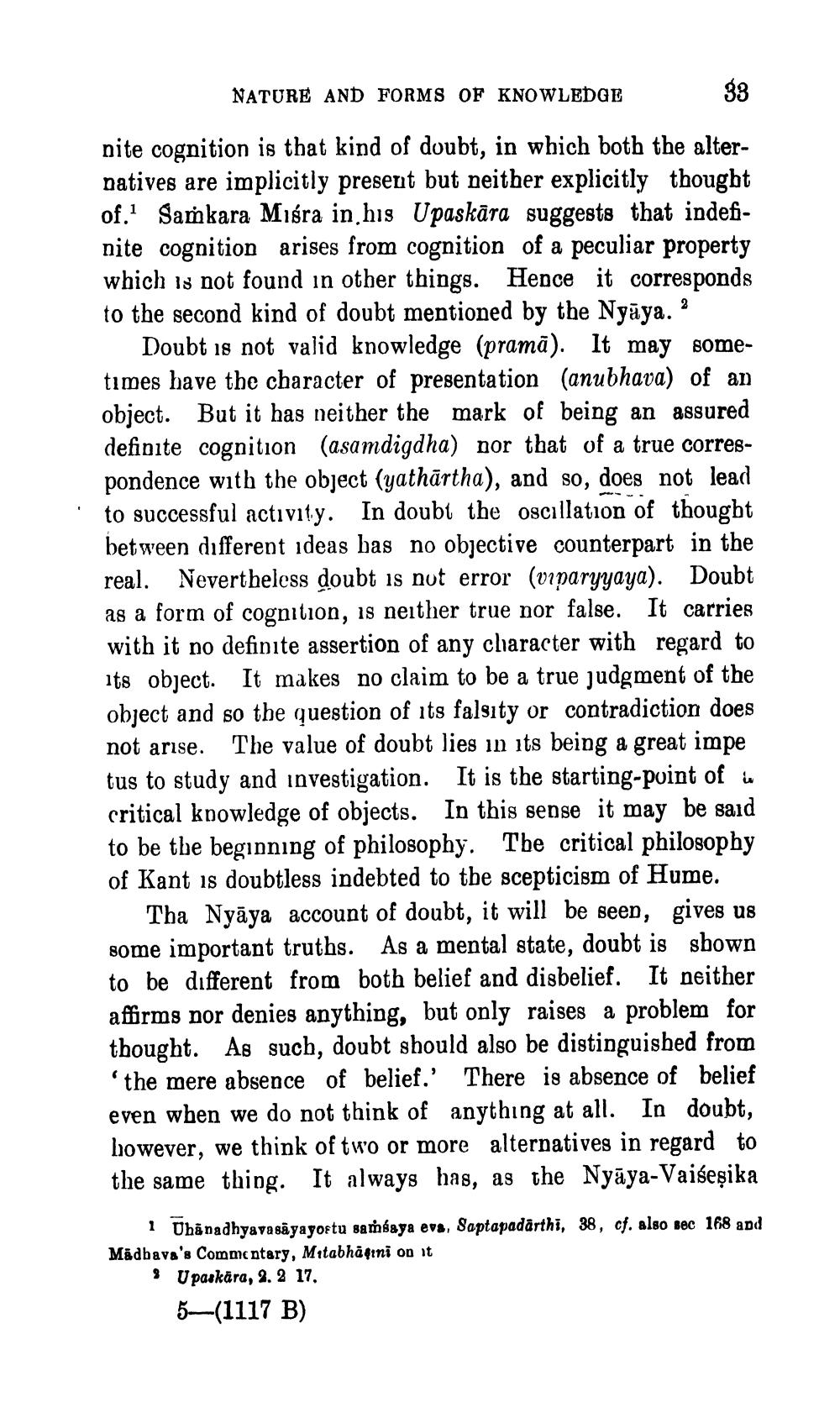________________ NATURE AND FORMS OF KNOWLEDGE 33 nite cognition is that kind of doubt, in which both the alternatives are implicitly present but neither explicitly thought of.' Samkara Misra in his Upaskara suggests that indefinite cognition arises from cognition of a peculiar property which is not found in other things. Hence it corresponds to the second kind of doubt mentioned by the Nyaya. ? Doubt 18 not valid knowledge (prama). It may sometimes have the character of presentation (anubhava) of an object. But it has neither the mark of being an assured definite cognition (asamdigdha) nor that of a true correspondence with the object (yathartha), and so, does not lead to successful activity. In doubt the oscillation of thought between different ideas has no objective counterpart in the real. Nevertheless doubt is not error (viparyyaya). Doubt as a form of cognition, is neither true nor false. It carries with it no definite assertion of any character with regard to its object. It makes no claim to be a true judgment of the object and so the question of its falsity or contradiction does not arise. The value of doubt lies in its being a great impe tus to study and investigation. It is the starting-point of critical knowledge of objects. In this sense it may be said to be the beginning of philosophy. The critical philosophy of Kant is doubtless indebted to the scepticism of Hume. Tha Nyaya account of doubt, it will be seen, gives us some important truths. As a mental state, doubt is shown to be different from both belief and disbelief. It neither affirms nor denies anything, but only raises a problem for thought. As such, doubt should also be distinguished from 'the mere absence of belief.' There is absence of belief even when we do not think of anything at all. In doubt, however, we think of two or more alternatives in regard to the same thing. It always has, as the Nyaya-Vaisesika 1 Uhanadhyavasayayostu sambaya eva, Saptapadarthi, 38, cf. also sec 168 and Madbava's Commentary, Mitabhaqini on it U paskara, 2. 2 17, 5 (1117 B)




